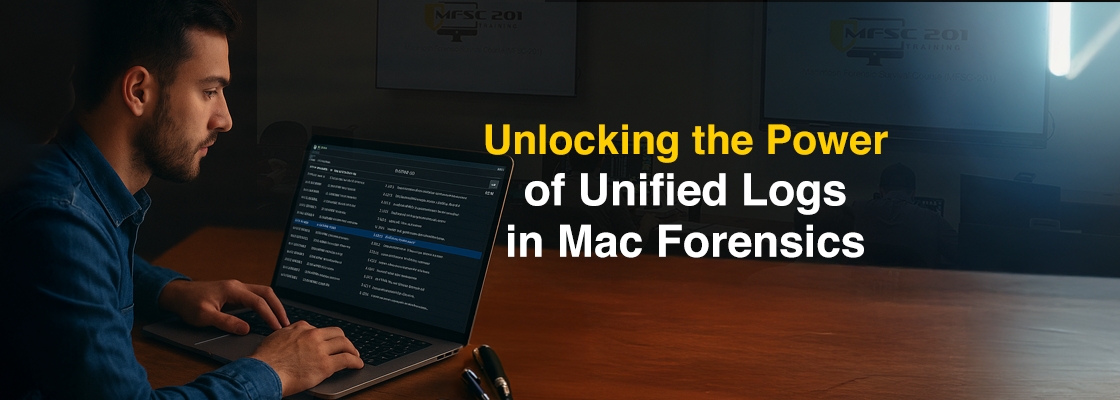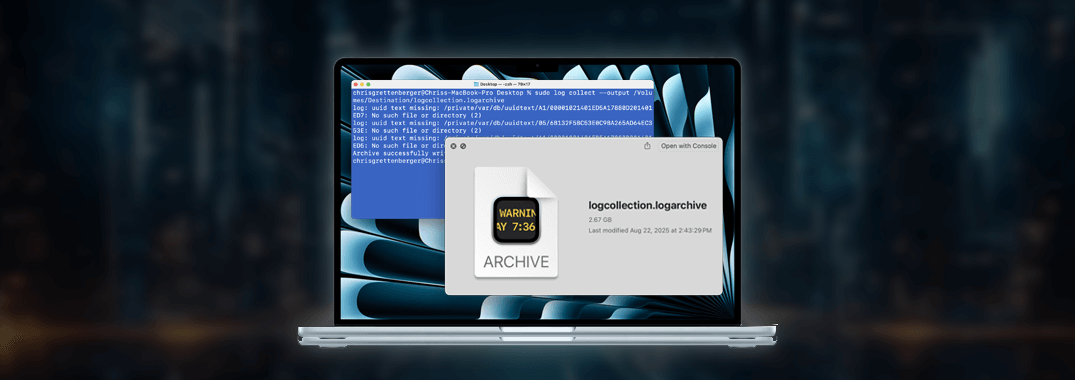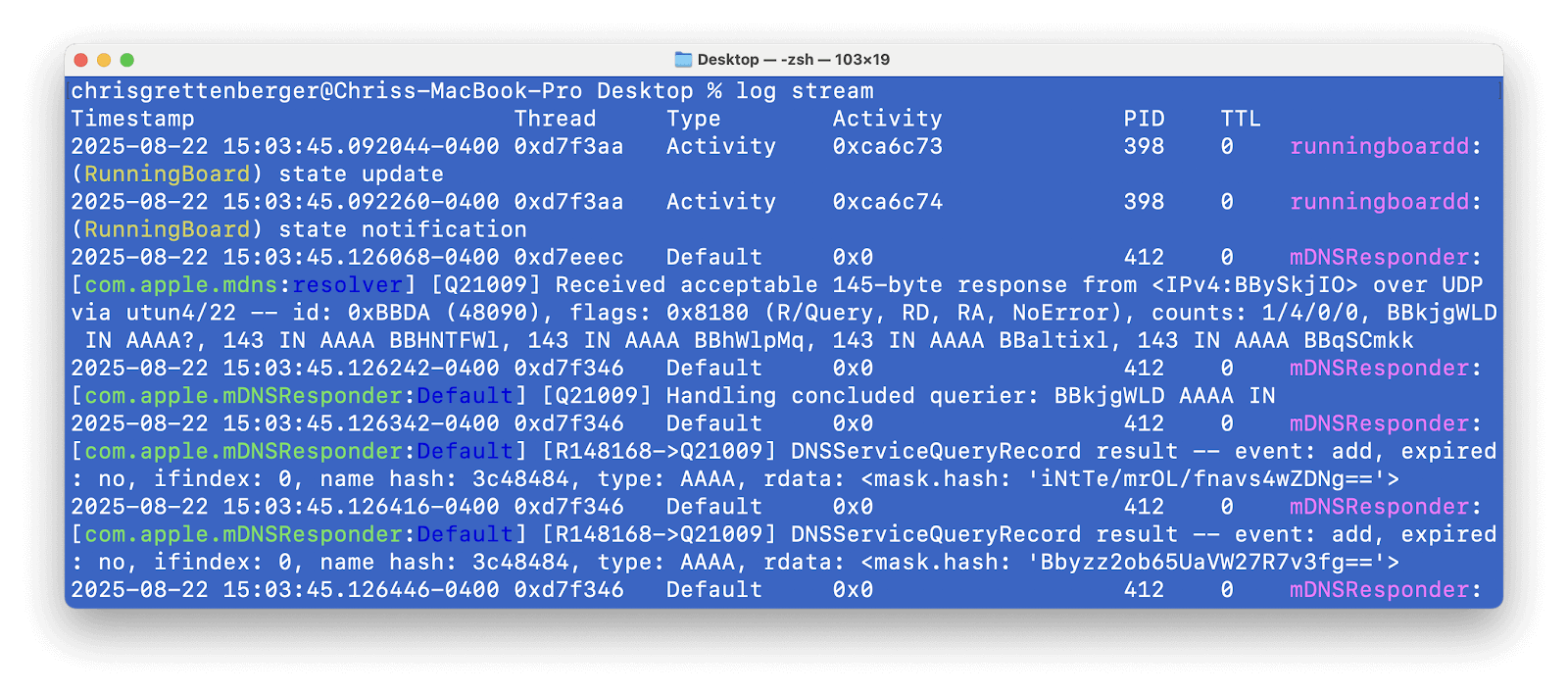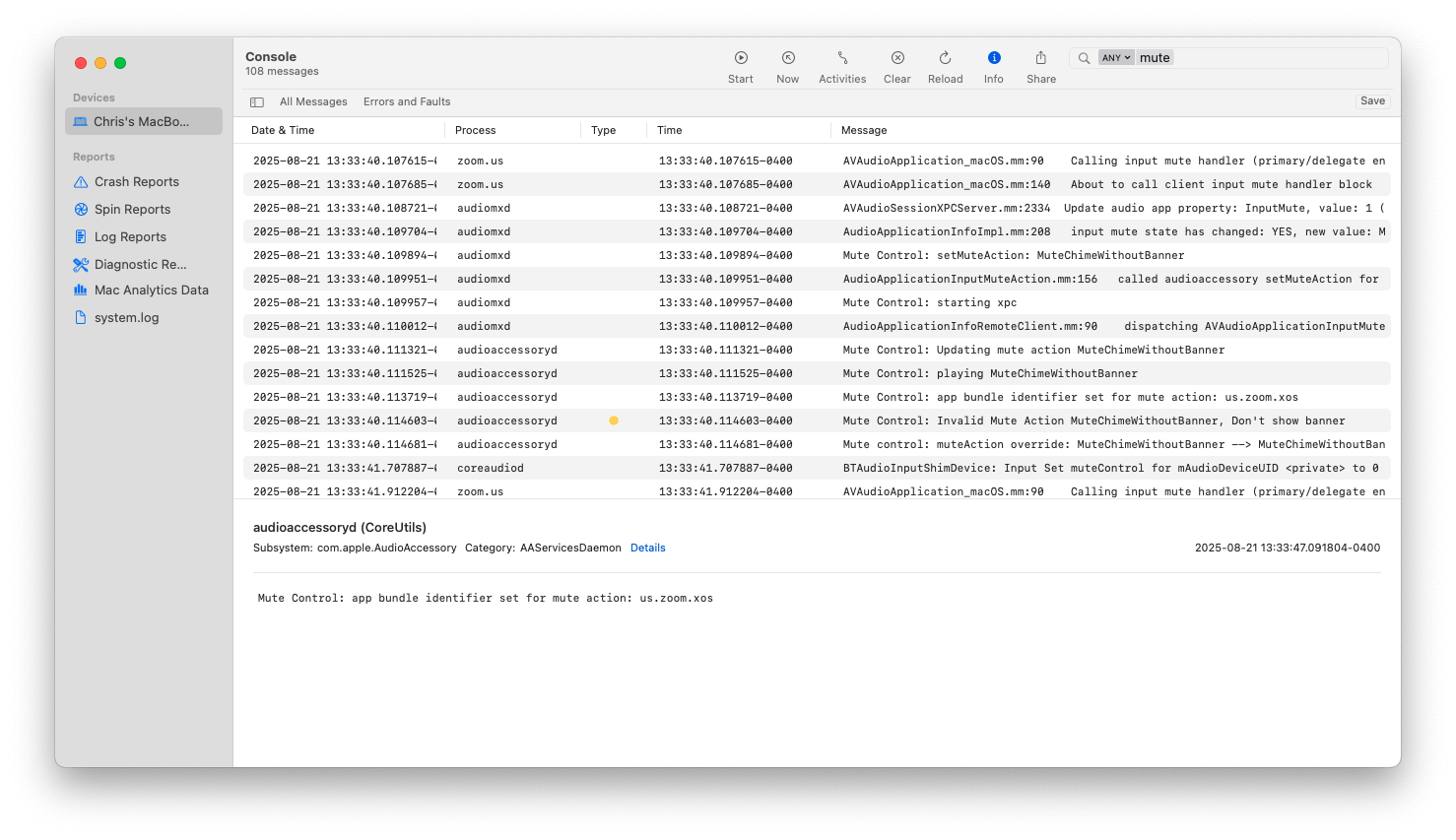

Unlocking the Power of Unified Logs in Mac Forensics
When examining a Mac system, one of the richest but often overlooked sources of evidence is Apple’s Unified Logs. Since macOS 10.12, Unified Logs have served as the operating system’s primary method for recording system activity, replacing older text-based logs. These logs capture a wide range of data: system processes, application faults, resource utilization, and more. For forensic investigators, they can reveal details far beyond what is cached in the file system.
Why Unified Logs Matter
Unified Logs are not just background noise. They provide examiners with an unparalleled timeline of how a Mac was being used. Whether it’s tracking down evidence of a user opening an application, identifying system errors, or even confirming actions during a live event, Unified Logs can fill in critical gaps in an investigation.
For example, imagine needing to verify if a suspect was muted during a Zoom call at a specific moment. By filtering Unified Logs with a targeted keyword like “Mute,” you can narrow down thousands of records to find the precise second the microphone was disabled.
The Challenges of Unified Logs
As valuable as they are, Unified Logs aren’t examiner-friendly by default. Each log is part of a compressed archive format, making manual review nearly impossible without specialized tools. The built-in Console application on macOS is the most straightforward way to browse them, but even then, you are dealing with millions of records generated every day.
Because of this, strategy matters more than brute force. The key is to start broad with keyword searches and then refine your results step by step until you isolate the evidence you need.
Collecting Unified Logs
There are two primary ways to collect Unified Logs:
1. Log Archive (.logarchive): The most complete method is running “sudo log collect”. This requires administrator access but gives you a full log archive containing both the memory buffer and persistent log data. The archive can then be opened in Console with proper timestamps intact, making analysis significantly easier.

2. Text Output: Alternatively, you can stream logs to a text file with a command such as: log stream > /Volumes/DEST/log-collection.txt
While valid, this method takes longer since it decompresses logs into raw text. The advantage is that you can use tools like grep or regular expressions to parse them directly, though it requires more time and expertise.

Making Sense of the Noise
Once collected, Unified Logs can be overwhelming. macOS generates hundreds of log entries every second, and investigations often involve days’ worth of activity. This is where filtering becomes essential.
- Cast a wide net: Start with broad keywords related to the application, action, or timeframe of interest.
- Refine and filter: Narrow results with additional searches, timestamps, or process names.
- Extract the evidence: Once identified, copy relevant records into a text file or screenshot results from Console to preserve them as part of your report.

Example in Action
Take this case study: an investigation required proving whether a user muted their microphone during a Zoom call. By searching the Unified Logs with the keyword “mute,” investigators were able to quickly identify a cluster of log entries tied to both the zoom.us process and audio system daemons, all within the same second.
This narrowed the millions of log entries into a handful of relevant records, each showing the precise timestamp and confirming the microphone mute action. Without Unified Logs, this evidence would have been far more difficult to pinpoint.
Taking It Further with MFSC 201
Unified Logs are just one of the advanced topics covered in SUMURI’s MFSC 201: Advanced Practices in Mac Forensics course. In this training, we provide hands-on exercises to help examiners confidently collect, parse, and analyze Unified Logs as part of real-world casework.
If you want to strengthen your Mac forensics skills and learn how to unlock the full potential of Unified Logs, explore our upcoming MFSC 201 courses here:
View MFSC 201 Courses- By Chris Grettenberger
- Categories: Blog


Why Use a Mac for Mac Forensics





